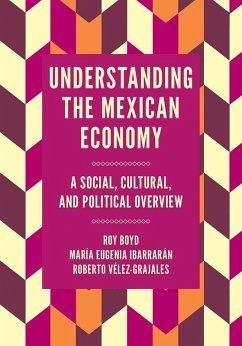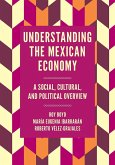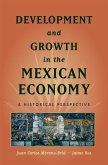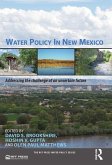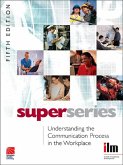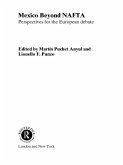The Mexican economy is a contemporary political flashpoint, and not just in Mexico, but in the United States, as well. Yet few people understand it in its full complexity, and fewer still understand the social, cultural, and historical factors that have helped to make it what it is today and that will continue to affect its future.In Understanding the Mexican Economy, Roy Boyd, Maria Eugenia Ibarrarn, and Roberto Vlez-Grajales offer a comprehensive overview of these factors. They provide a full, historical, economic, and political context through which to understand the actions of the people and government of Mexico, and they give insights into how those actions impinge -- and might continue to impinge -- on the United States. They conduct a wide-ranging examination of the Mexican economy and investigate the causes of persistent problems such as economic stagnation, high poverty levels, and emigration abroad. Stressing the critical role played by economic incentives as well as Mexico's geography and political institutions, they employ a number of modeling techniques, including a specially designed computer model, to discuss a variety of topics including international trade, regional inequality, the informal economy, natural resource extraction, Mexico's "e;war on drugs,"e; and the economic impact of US trade and immigration policy on both Mexico and the US.For its comprehensive overview and the new insights it provides into these crucial and yet often tragically misunderstood issues, Understanding the Mexican Economy is essential reading not only for economists, but also for practitioners with a policy interest in Mexico, for students of Latin American studies, Development Studies, geography, and sociology, and for anyone with an interest in recent events and controversies around US-Mexican relations.
Dieser Download kann aus rechtlichen Gründen nur mit Rechnungsadresse in A, B, BG, CY, CZ, D, DK, EW, E, FIN, F, GR, HR, H, IRL, I, LT, L, LR, M, NL, PL, P, R, S, SLO, SK ausgeliefert werden.

